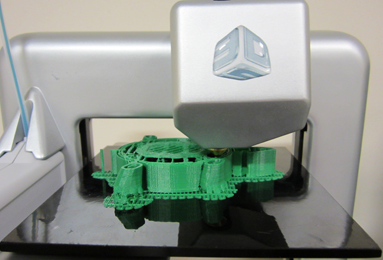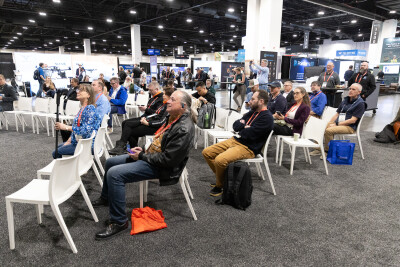3D Systems CEO Abe Reichental talks democratization
ORLANDO – Abe Reichental is personally passionate about printing 3D objects in chocolate. Luckily, as CEO of 3D Systems, what’s now the largest 3D printing company in the world following the acquisition of Z Corporation, he has an outlet for that passion.
“It’s one of my free time activities,” he joked to the crowd at FARO’s 3D Documentation Conference here. “We will have meaningful 3D printing opportunities for chocolate.”
Really, why not? Already, 3D Systems is putting $1,300 3D printers in children’s bedrooms so they can print out their action figures and chess pieces. If you listen to an evangelist like Reichental, every kitchen will have a printer, every garage.
And sculptors better watch out. “In the world of the future,” Reichental declared, “some of the God-given skills needed to work material with their hands will become democratized and available to anyone.” Anyone with a computer and some design software, anyway.
This desire for creative outlets, coupled with utility and the general human need for individuality are pushing 3D technology closer and closer to the mainstream, he said. “All of us want something special, from a monogrammed shirt to an engraved piece of jewelry,” so why not have customizable iPhone cases you can print out at the local kiosk while you wait?
To make this more and more of a reality (such things do already exist), Reichental said the industry must make the capture-to-print workflow “coloring book simple.”
“We embrace and thrive on complexity,” he said of the people in the room, for whom laser scanning and 3D CAD software are everyday tools. “But the opportunity is on the other side, turning this bewildering complexity around and changing it into something that is meaningful and impactful and life-changing and simple.”
The value proposition for 3D printing is clear to Reichental. “It gives us complete freedom of creation, reduces tooling, compresses lead times, offers infinite personalization, cuts inventory costs, minimizes waste,” he said. “These are all very compelling arguments for starting up companies.” If we can reduce the friction between idea and reality, “the create-and-make revolution,” as he called it, could allow for an explosion of new businesses and economic growth.
“We are in a historical moment here,” he said, “many external and internal forces are favorably conspiring to create something really new and exciting.”
See Reichental speak further on this topic at SPAR International, April 15-18, in Houston.






